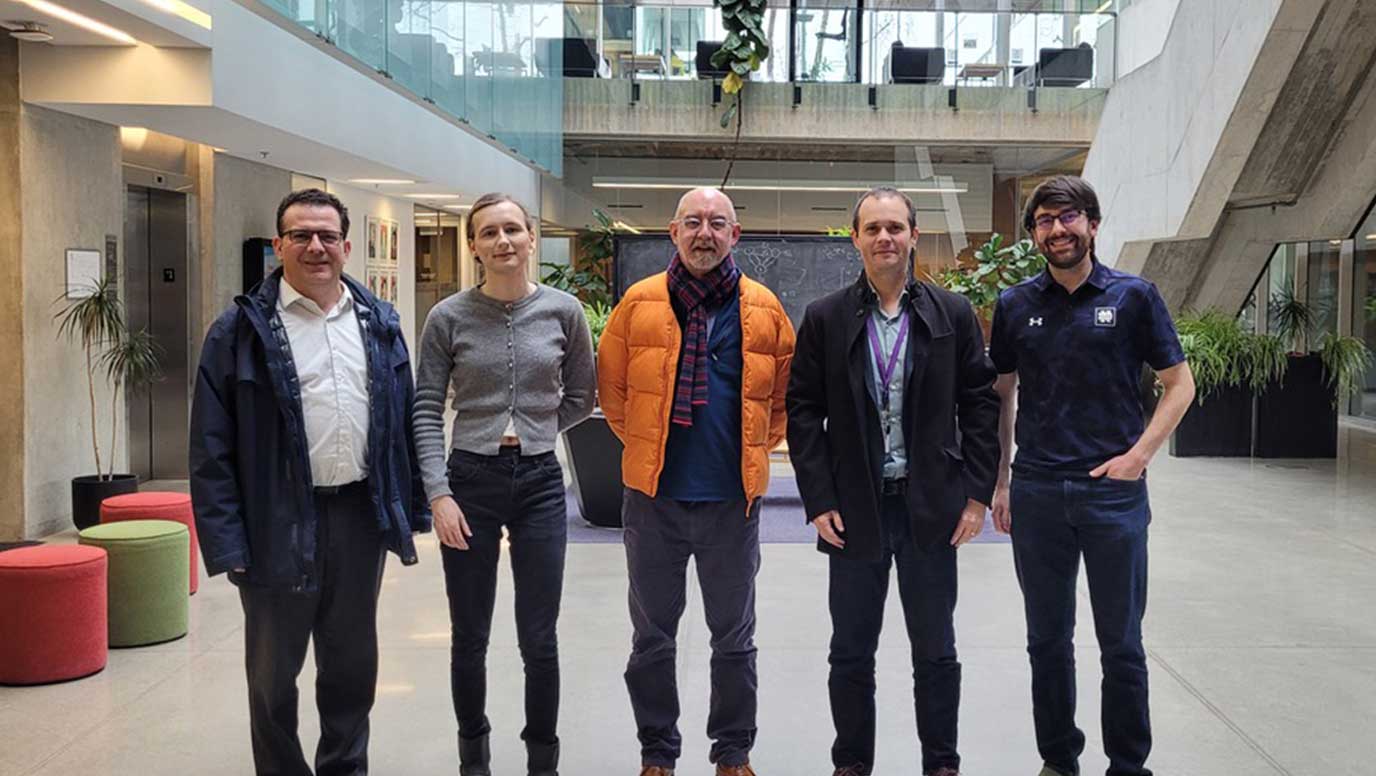Nu Quantum co-leads UK-Canada quantum computing project

The duo are collaborating on a project to build the theoretical framework for the first fault tolerant quantum computer.
Nu Quantum, led by Dr Carmen Palacios-Berraquero, and softwareQ Inc. – co-founded by Dr Vlad Gheorghiu and Professor Michele Mosca – will propose and benchmark practical architectural solutions.
The motivation for the project is to tackle one of Quantum Computing’s biggest and most urgent challenges: scaling. In the current macroeconomic climate, the QC industry must be able to chart a clear path to Fault Tolerance and commercial relevance. Any such path will be underpinned by the ability to network QCs.
This project will quantify the requirements of a network able to combine multiple small and currently-realisable QC 'nodes' into a larger, usable compute platform and aim to prove the feasibility of a system able to meet those requirements. This work, whilst based on well understood frameworks, is the first step towards actually building a multi-core, distributed, error corrected QC paradigm.
Error correction and algorithms with advantage require larger quantum coherent systems than have been created to date, and quantum data centre networking provides a path to scale complementary to qubit node development.
In order to take advantage of a distributed quantum computer, the compiler stack must be aware of the nature of high fidelity, long-range entanglement.
Working together, Nu Quantum and softwareQ are using hardware-software codesign techniques to integrate softwareQ's advanced compiler technology into the real-time firmware of Nu Quantum's control system.
This allows the partners to build an architecture that takes maximum advantage of every qubit and link available in a computer, as soon as it becomes ready, accelerating progress towards useful quantum computing. The project will produce artefacts that quantify the impact of e.g.
● Different network topologies (graphs)
● System scale (qubits-per-node; number of nodes)
● Network performance (rate; loss)
● Applied Error Correction scheme(s)
It will also identify the most promising architecture(s) and set real-world performance targets for systems that can first provide experimental proof of concept and then be further exploited towards instantiating a Fault Tolerant Quantum Computer.
Project Quarrefour was made possible through a joint program between the UK and Canadian governments. For Nu Quantum, the funding entity was Innovate UK under the competition ‘Canada UK Commercialising Quantum Technology Programme: CR&D’; for softwareQ, the funding entity was National Research Council of Canada through the Industrial Research Assistance Program (NRC IRAP).
softwareQ CEO Dr Vlad Gheorghiu said: “In partnering with Nu Quantum, we are not only forging a powerful collaboration between two pioneering entities but also fostering stronger ties between Canada and the UK in the realm of quantum computing.
“Through our joint efforts, we aim to push the boundaries of quantum compiling, scalability, and fault-tolerance, unlocking new possibilities and paving the way for transformative applications.”
Dr Carmen Palacios-Berraquero, founder and CEO at Nu Quantum added: “Nu Quantum is on a path towards a solution for modular networking and high performance entanglement.
“This collaboration with softwareQ will help guide future development work towards architecting and building a fault tolerant networked quantum computer. We’re thrilled to be working on such an ambitious project with an outstanding partner.”
Founded in 2018, Nu Quantum is a spin-out from the University of Cambridge’s Cavendish Laboratory. Last November, the company raised an £8.5 million pre-series A round from main investors Amadeus Capital Partners, Expeditions Fund, and IQ Capital.
• PHOTOGRAPH: From left to right: Dr. Michele Mosca, Head of Quantum Algorithms at softwareQ; Coral Westoby, Senior Control Engineer at Nu Quantum; Edward Wood, VP Product at Nu Quantum; Dr. Vlad Gheorghiu, CEO and President of softwareQ; Dr. Andrew Jena, quantum software engineer with softwareQ. Photo credit: Dr. James Lambert of softwareQ.


